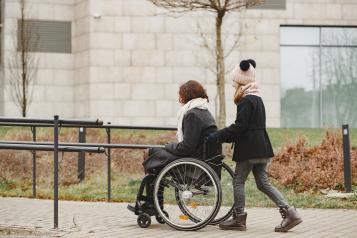Eating Disorders Awareness Week

Binge eating disorder affects more people than anorexia or bulimia with 1 in 50 of us being affected at some point in our lives. People living with binge eating disorder can find it difficult to ask for help, spot the signs and even develop suicidal thoughts.
Find more information about binge eating disorder, including what it is, the symptoms and support.
Download and view various information and resources:
- Reach out to your GP
- Get the support you deserve
- A guide for friends and family
- Spot the warning signs
- Help for under 18s
- Caring for someone
It is important to know that you are never alone when you have an eating disorder and there is support available. You can find support here:
Wolverhampton Eating Disorders Team
- Gives support to people with the following eating disorders: anorexia nervosa, bulimia nervosa, binge eating disorder and eating disorders not otherwise specified.
- The service is for adults (18 to 65), and will also help people who are aged 16 to 18 if they are not in full-time education.
- They try to involve carers and families as much as they can. Carers and families can help make care plans, and can also be a part of the care plan.
- They help families and carers learn more about eating disorders.
If it is the first time using the service you must be referred to them by a GP.
Beat Eating Disorders
- Helpline: 0808 801 0677
Email: help@beateatingdisorders.org.uk
Helpline is open 365 days a year from 9am–8pm during the week, and 4pm–8pm on weekends and bank holidays. If you can’t get through immediately, please do try again or try their one-to-one web chat.
If you are in need of urgent help for yourself or someone else outside of the Helpline opening hours, please contact 999 or the Samaritans on 116 123 if you or someone else is in immediate danger.


